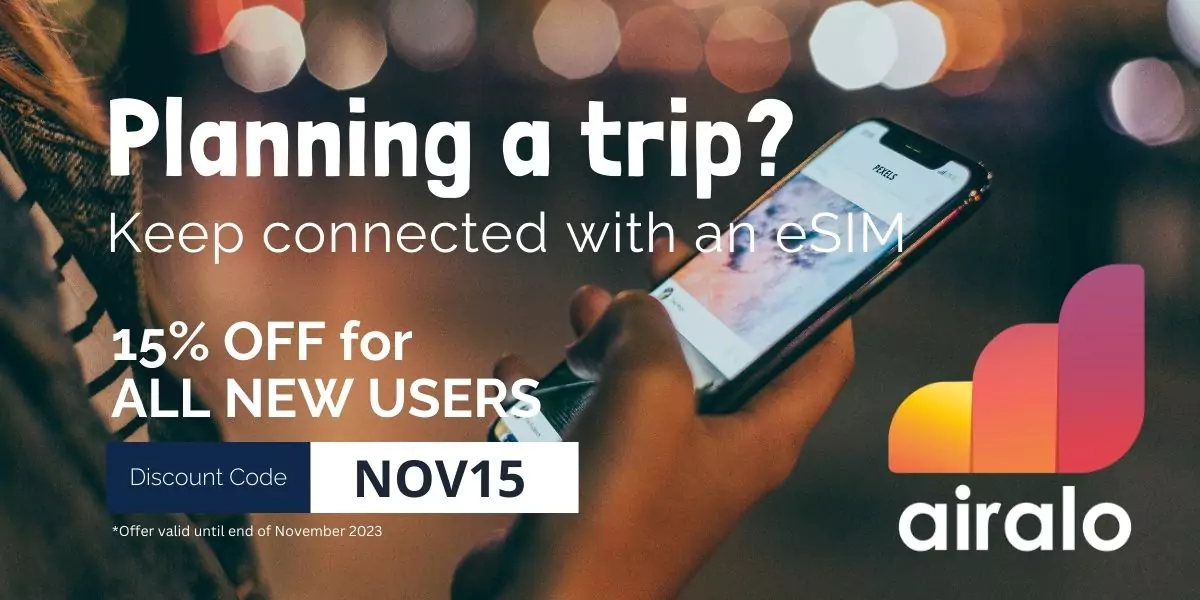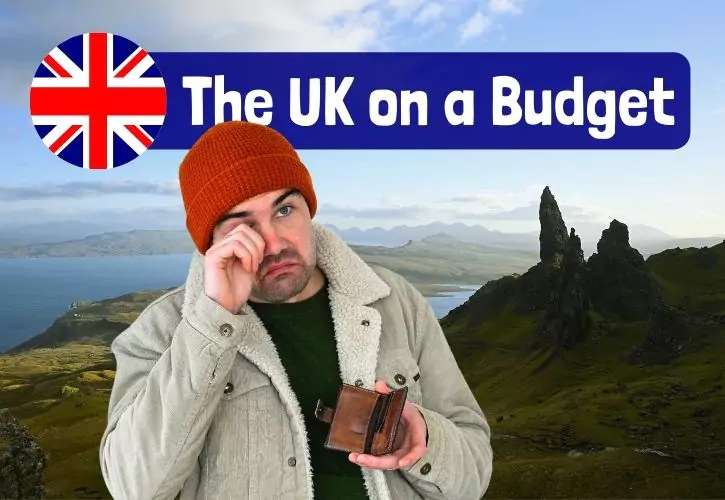
13 Hidden Travel Costs and How To Avoid Them
29 Aug, 2023
Don’t let hidden travel costs blow your budget out! Taking into account hidden travel costs within your travel budget is crucial. These costs can quietly accumulate into a substantial amount of money, especially when travelling long term. There are many strategies you can implement to minimise hidden travel costs both during the planning stages of your journey and while you’re on the road.
When planning for our yearlong adventure around the world in 2023, we made sure to account for these unexpected costs in our budget to avoid last-minute financial stress. I have included tips on how we managed to minimise many of these hidden travel costs and some of our lessons learned during our travels where we've been caught out.
Disclaimer: This post contains links to our preferred travel products and services. When you purchase through these links, your purchases can generate a small profit for us, without any added cost to you. This helps us to continue offering top-notch travel advice and savvy savings tips on how you can make cents of travel. Rest assured, we only share links to products and services that we personally love to use.
Chapters
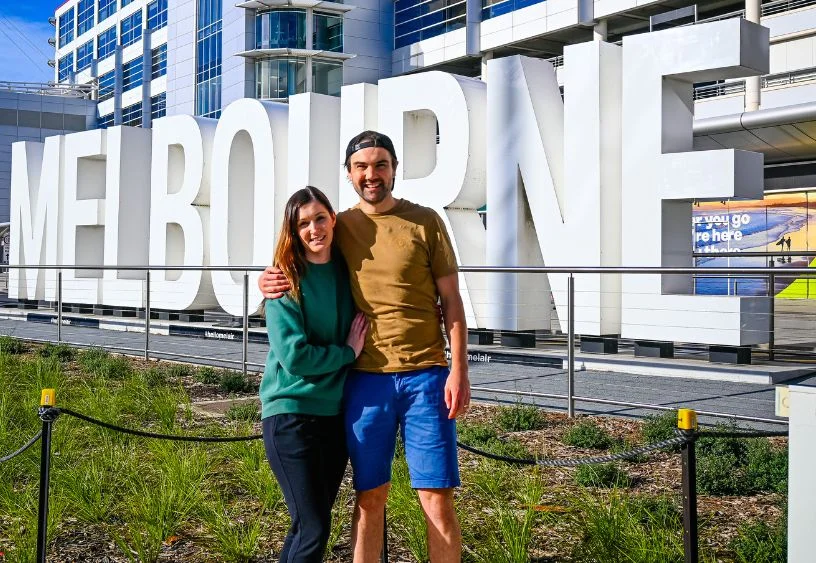

Hidden Travel Costs: Travel Insurance
Whether you are travelling for a week-long holiday in Fiji or planning a year long adventure around the world, it is sensible to purchase travel insurance. Obviously, you hope that you won’t ever need to claim on your insurance policy, but it is best to be prepared for worst case scenario just in case. As we are travelling for a whole year, don't have a return ticket, and are going to over 20 countries in three continents we found it slightly more difficult to find adequate travel insurance. After researching and filling out countless online quotes we found Fast Cover. Our favourite travel insurance company to use for long term travel is Fast Cover.
They offer comprehensive policies suitable for long-term travellers at a reasonable price. We decided to go for the basic cover package because our main priority was being covered for adequate international medical expenses in the unfortunate event of an accident. We were prepared to pay out of the pocket expenses for any smaller misadventures that may arise during our travels such as lost luggage, broken cell phones, or if our travels were impacted by a natural disaster.
Fast Cover's basic policy provides us with the assurance that we would be able to claim enough money to have our international medical bills covered and the ability to return to our home country as soon as possible should we ever have a major medical issue overseas. We compared other insurance companies such as Safetywing, which is designed for travellers and nomads and is much cheaper, however, the maximum medical cover was considerably less than Fast Cover and we felt that decent medical insurance was a non-negotiable when travelling long-term.
For shorter holidays, such as when we travelled to South East Asia in 2022, we use Southern Cross Travel Insurance who are an extremely reputable company in New Zealand and Australia. Our preference would have been to use SCTI for our year of travel however, their policies are generally designed to be used for shorter holidays so we ended up purchasing insurance cover that suited our long term travel requirements better from Fast Cover instead.
Travel insurance is an important cost to budget for when you are planning to travel long-term. For more helpful travel planning advice, take a read of our 3 Simple Steps to Start Planning One Year of Travel
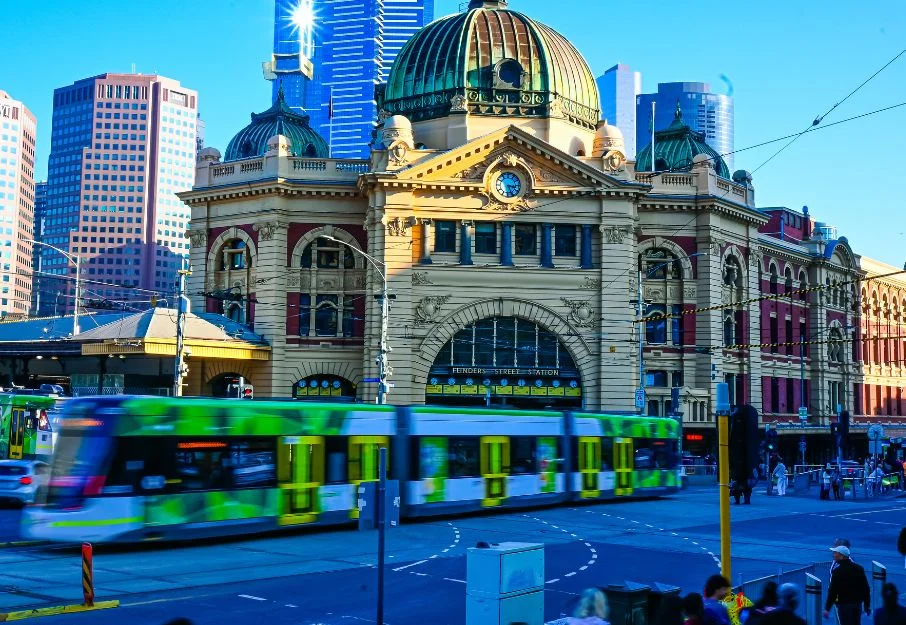
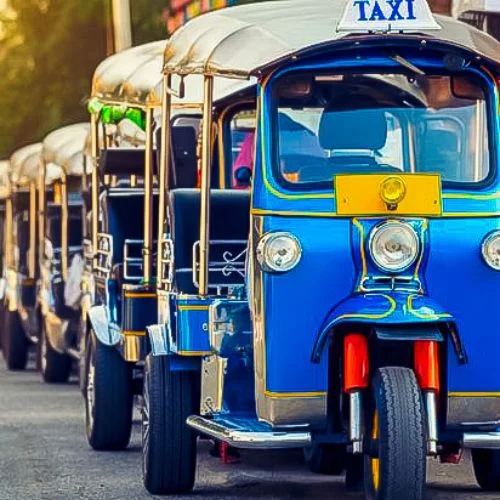
Hidden Travel Costs: Transport
It’s likely you have already factored your international flight costs into your travel budget however sometimes it’s easy to brush over the additive costs of domestic travel.
Some key areas to allow extra budget for are transportation to and from the airport. Airport transportation can be pricey as many cities have airports located a fair distance from the city centre and some cities don’t offer the best public transport connections to the airport.
Another area of transport that is often forgotten about is local transport around a city, whether that be grabbing a taxi, hiring a car or taking the bus, train or tram. While individually they’re often not that expensive we’ve found that the local transport cost can creep up quickly, so it is important to include them in your travel budget. We have found websites like Omio and Flixbus useful for budgeting and booking regional transport around Europe.
Strategies to minimise local transport costs: Book accommodation that is easily connected via cheaper public transport routes or where you can walk to the main attractions from to avoid having to pay for exorbitant taxi rides.
For example, in Rome we booked accommodation in Trastevere because we love foodie experiences and knew we would spend a lot of time in the area. Trastevere is also walking distance to the main attractions we want to see like the Colosseum, Roman Forum and Pantheon making it the ideal location for us to minimise the cost of local transportation and stay in an area that is slightly less expensive than the city centre.
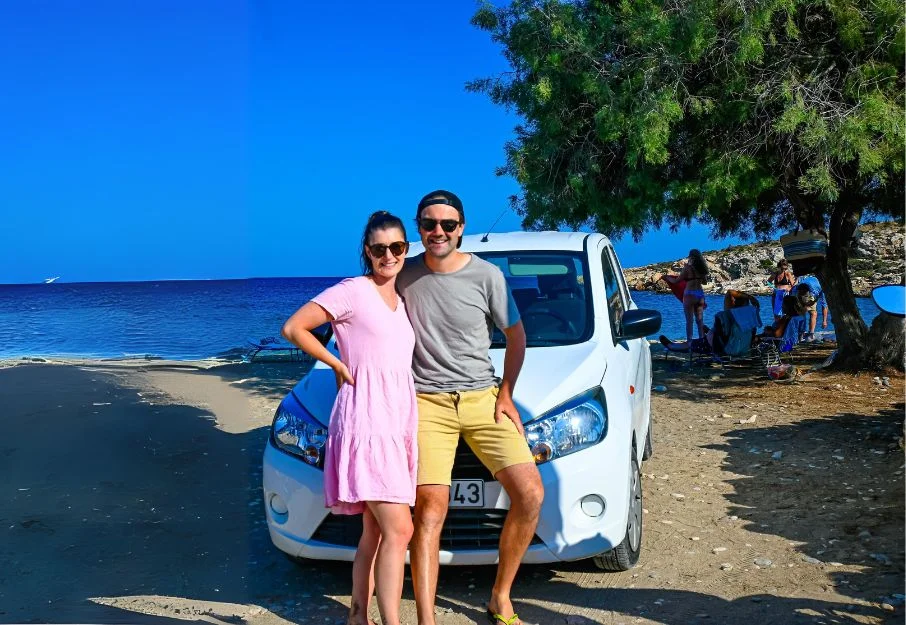
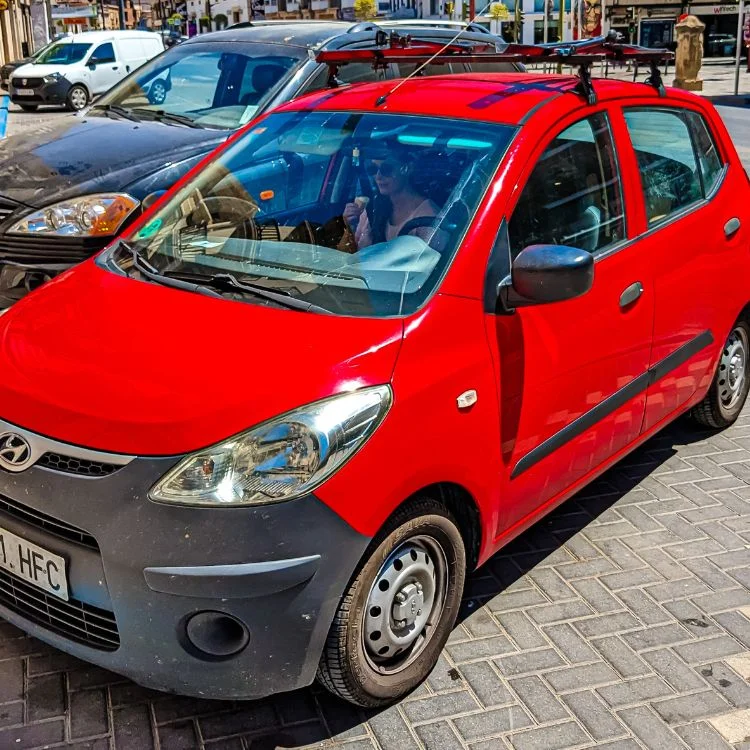
Hidden Travel Costs: International Driver's Licence
If you are planning on hiring a vehicle while you are travelling internationally. Make sure you organise yourself an international driver’s licence in your home country before you leave. Many countries will not accept your standard driver’s license only. In New Zealand it only costs $28nzd (2023) for a paper copy from AA, in Australia it costs around $42aud for a paper and digital copy (2023).
Apply for your New Zealand International Driver's Licence here.

Our Two Cents Newsletter
Hidden Travel Costs: Visas
You should always identify visa requirements of a country before you travel there to ensure you have a smooth arrival process. We use Handyvisas.com to figure out whether we need a visa or not and how to apply, along with associated costs.
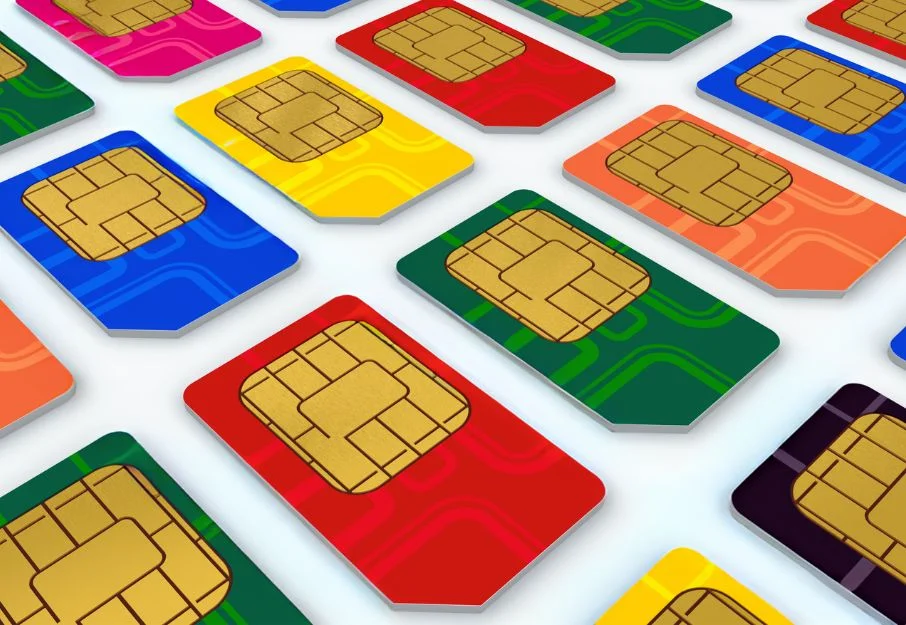
Hidden Travel Costs: Data for Cellphone
It is absolutely possible to travel most parts of the world using only free Wi-Fi when it's available, I mean look at our parents’ generation who managed to travel the world using only printed maps and travel books. Although the question is, would you really want to travel without access to data? In 2023, we are lucky to have everything at the touch of our fingers and we have experienced, Wi-Fi can be quite unreliable while travelling.
Having mobile data is important for us to ensure our safety,
it is our map to figure out where we are going, as big foodies we find it
important to locate the best places to eat, and having data helps maintain our ability
to communicate with travel companions on the go and friends and family back
home. You have three main options for international cellphone plans.
One
Add a roaming plan to your current sim card using your
home country service provider. I would only recommend this option when
travelling short term as it is expensive. Interestingly enough, we utilised
this option when we went back to NZ to visit friends and family as it was cheaper
than any short-term prepaid deal from a NZ company.
Two
Purchase a local SIM card in the country you are
travelling to. Often there are local provider stands at airports and dotted
around the city. This is a great option if you will be in a country for longer
than a week. I recommend doing your research before leaving your own country to
figure out what company has the best reputation for coverage and the best plan
to suit your needs.
Purchasing a local SIM is usually the best option for mobile data when you’re going to be in a country for a couple weeks or more, as it’s often the cheapest and comes with the most data.
Three
Purchase an eSIM online. Only some phones have access to use eSIMs, unfortunately mine doesn’t 😒. We used an eSIM through Turkey on Tim's phone because the local SIM card rate was ridiculously expensive. The company we used is called Airalo who have a number of plans that can be used around the world. Tim found the reception was decent and we were able to hotspot the data from Tim’s phone to mine to share the data usage.
Hidden Travel Costs: International Transaction Fees and Exchange Rates
Exchange rates are something you will have to constantly deal with while travelling. It is important to know that not all banks, credit and travel cards, or money exchange companies offer the same exchange rates and international transaction fees. When budgeting for your trip, I would recommend figuring out roughly what your exchange rate is going to be to ensure you allow enough money to cover any losses. If you are travelling long term, the exchange rates can fluctuate quite a bit so I would suggest budgeting up to another 5% extra to allow for the fluctuations.
Never accept the exchange rate offered by an ATM or payment terminal
We found this out in Turkey as the local Lira currency is currently in hyperinflation and we found that during our three weeks of travel around the country the cost of some items were literally changing day by day.
Strategies to minimise International transaction fees and get the best exchange rate:
• Apply for a credit card that doesn’t charge international transaction fees. Our favourite is the Commbank ultimate rewards credit card.
• Grab a money card like the Wise card.
• Only get out a small amount of international currency from a bank or money exchange company in your home country before you leave as these companies tend to offer the highest fees and least favourable exchange rates.
• Use XE currency converter for a guide of a fair exchange rate.
• Use ATMs at your destination that do not charge an ATM withdrawal fee, if possible. Try a couple different ATM’s to figure out the lowest ATM fee available.
• Never accept the exchange rate offered by an ATM or payment terminal, always select your own bank’s exchange rate as it will be more favourable. In Rome, Italy we accidently pressed the wrong button and found that the difference between CommBanks conversion and the Italian bank ATM was a difference of $13. Silly us!
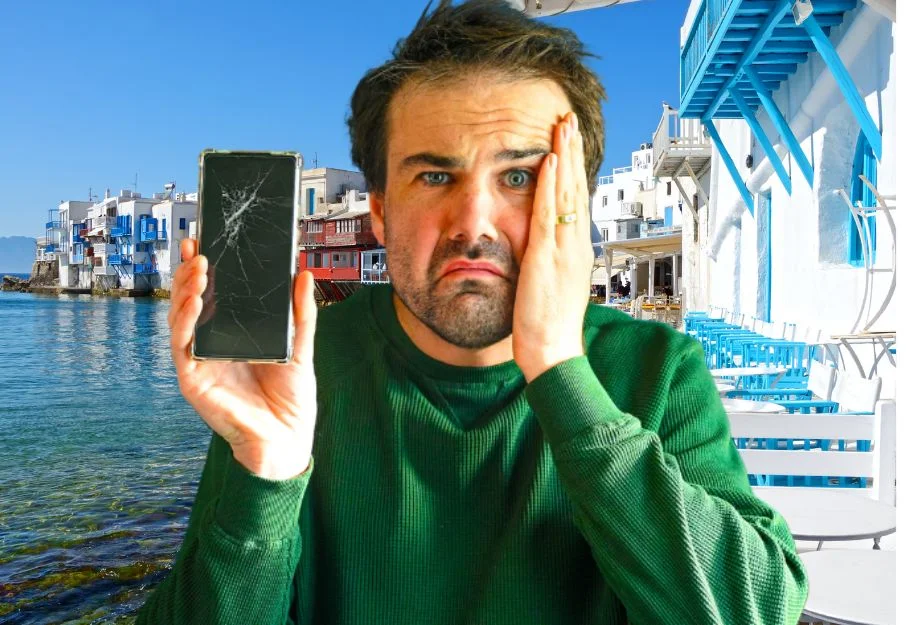
Hidden Travel Costs: Emergencies
Emergencies are one of the hidden travel costs you hope you never have to fork out money for during your travels. Unfortunately, accidents can happen when you travel so it is best to be prepared financially by setting aside a portion of money in case of an emergency. My number one recommendation to avoid unexpected expenses that emergencies can result in is to purchase a comprehensive travel insurance package. However, sometimes insurance companies may not cover costs associated with an accident or may reimburse you for costs after the fact as opposed to paying up front.
It is a good idea to set aside enough money to at least purchase a last-minute one-way flight home. Just remember that smaller issues may come up while you travel, such as medical fees, lost passport replacements, scam money recovery and broken phones while you travel so be sure you have a bit of cushion to be able to cover these costs should they arise. We have already had to purchase a new phone for Tim after his old one took a dip into the Mediterranean while we were in Greece. .. opps!


Hidden Travel Costs: Sporadic Activities
When you are planning for a trip, you've probably already budgeted for those once in a life time activities such as hot air ballooning in Cappadocia, a local cooking class in Italy or swimming between the tectonic plates in Iceland. But have you thought about the cost of all the entrance fees to the many architecturally brilliant buildings such as the Colosseum, or fun activities you sporadically stumble across during your travels like kayaking in the Cinque Terre or a memorable walking tour through Florence.
These hidden travel costs may seem small but can add up quickly over time, so it is important to consider setting money aside for sporadic activities that crop up along the way. The last thing you want is to feel like you have to say no to a fun activity you would love to do because you didn’t account for the cost in your travel budget.
We do this by setting aside a pool of money dedicated to activities for each section of our trip. Most of the time we don’t know what the specific activity is but if we see something we want to do, we feel like we can go for it without feeling financially constrained because we didn’t consider budgeting for sporadic activities.
Want more cash to enjoy on your next trip? Our article below will help you save for that once in a lifetime trip.

Hidden Travel Costs: Everyday Expenses
We are talking about things like make-up, toiletries, sunscreen the list goes on. This category is not so much a hidden travel cost as such but could easily add up when unaccounted for in your overall budget. I would suggest calculating roughly how much you expect to pay for these sorts of items each week at home and add it in to your travel budget.
Strategies to minimise your everyday costs: Purchase local brands of toiletries. Sometime imported products can be 10x more expensive than local products. A good example of this is sunscreen in Europe, we found local sunscreen brands to be a reasonable 5 to 10 euros per bottle whereas Nivea sunscreen was up to 25 euros per bottle! No thank you!


Hidden Travel Costs: Clothes
When travelling for a year, you only have a limited amount of space in your bag for clothing which means unless you’re endlessly chasing summer or winter around the globe, you’re going to need two wardrobes! This is hard for us when we are trying to travel light(ish). Generally you will need to pack for the season you are commencing your travels in. We are travelling Europe for the majority of the year. We arrived in May 2023, so packed for the European summer with the odd extra layer for the cooler nights. Our budget for the year includes an allowance for a clothing upgrade to a winter wardrobe when we hit the cooler weather in the UK at the start of October. We also expect to replace some clothing items throughout our travels because we will be re-wearing the same set of clothes over a long period of time.
Strategies to keep your clothing costs low:
• Check out local second-hand clothing stores along your travels for some absolute steals!
• Shop at places retail giants like H&M and Primark for cheap clothing
• Only purchase clothing that can be worn in many different combinations with the rest of your clothes. Co-ordination is key!


Hidden Travel Costs: Scams
No matter how vigilant you are, over a whole year of travel you are bound to be scammed or have something stolen at some point along the way. In the first two months of travel, we have had to deal with a credit card fraud and an incident when buying a tram ticket from the machine in Istanbul, where a man pretended to help us but instead scammed us. Luckily, the bank managed to recoup the funds from the fraudulent transactions on our credit card and the 100TL the tram ticket scammer took was only equivalent to $6aud at the time so it wasn’t a huge loss. Another advantage is Tim is much more vigilant now.
Strategies to minimise getting scammed:
• Research common scams in a country before you go, often scammers will take advantage of tourists who have just arrived.
• Keep your credit card details secure and use a VPN when connected to WiFi. Using a VPN can enhance your online security and privacy by encrypting the data you transmit over the network. This encryption makes it more challenging for potential attackers to intercept and steal your data. Ideally you would use your mobile data when making any online payments or using bank apps on your phone. Surfshark is our favourite VPN, check it out here for the best deal.
• Taxi Scams are common all over the world! Research taxi scams that are common in the country you are travelling to before you arrive. The best way to avoid being taken advantage of is by always asking to use the taxi meter. In some locations it’s difficult to find a taxi driver who will agree to this, as we have found in Morocco. This is where you should do some research before flagging a taxi to understand what a reasonable fare is.
Research taxi scams that are common in the country you are travelling to before you arrive
Hidden Travel Costs: Travel Vaccines and Medications
If you are travelling long term, it is best to check in with the doctor at least a couple months before you leave to find out if you will be requiring any travel vaccines before you go or while you are away. Vaccines and travel doctor visits can cost hundreds of dollars so make sure you budget for these hidden travel costs. Tim and I received our first dose of the Hepatitis A vaccine in 2022 and know that we need to get our second vaccine dose administered while we are in the UK so made sure to have the funds to cover this vaccination.
Your doctor or pharmacist should be able to provide you with advice on necessary medications and medical supplies to take with you on your travels. If you are taking any regular medications, ask your doctor to provide you with a letter stating the medications you will be travelling with just in case you get asked at customs for proof. You should always check the medication rules for each country you travel to, as some medications that are legal in Australia or New Zealand may not be legal in other countries.
CDC website is a great starting point for checking what vaccines you may require based on the locations you are going to be visiting. However you should always consult a healthcare professional for the most up to date advice on travel vaccines and medicines.
Are you planning a holiday? Check out our article below on how to save and turn that trip into a year of travel!

Hidden Travel Costs: Last Minute Travel Gear
You are counting down the days until you fly off to your first destination for the year and you are probably fretting about the last-minute supplies that have just sprung to mind. Have you got enough packing cubes? Is your drink bottle suitable for travel or do you need a filter one? Have you got a power bank and travel adapter? Do you need to purchase compression socks for the long flight? These are just some of the questions you may be panicking about in the weeks leading up to your departure date. There will always be a handful of last minute travel items you need to grab before you hit the road. Allow a little bit of extra money in your budget for these essential last minute purchases.
Top tip: When travelling to Europe, make sure you purchase a travel adapter that has a ground, like this one, to minimise the risk of accidental electric shocks. Trust me, I learnt the hard way! 🙈

I hope this list helps you to budget accordingly for any hidden travel costs you may encounter during your travels. Feel free to ask me any questions you may have about hidden travel costs, I am more than happy to help out fellow travellers.
Safe travels 😊
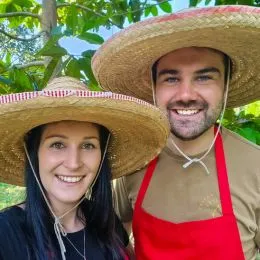
About Us
Hello, Hola, Ciao! We are Tim & Eva, a couple of kiwis who have spent the last few years saving for and planning our epic year-long adventure around the world. Our goal is to inspire fellow wanderlust souls (just like you!) to Make Cents Of Travel by sharing our experiences and strategies we used to turn our dream of long-term travel into a reality.



